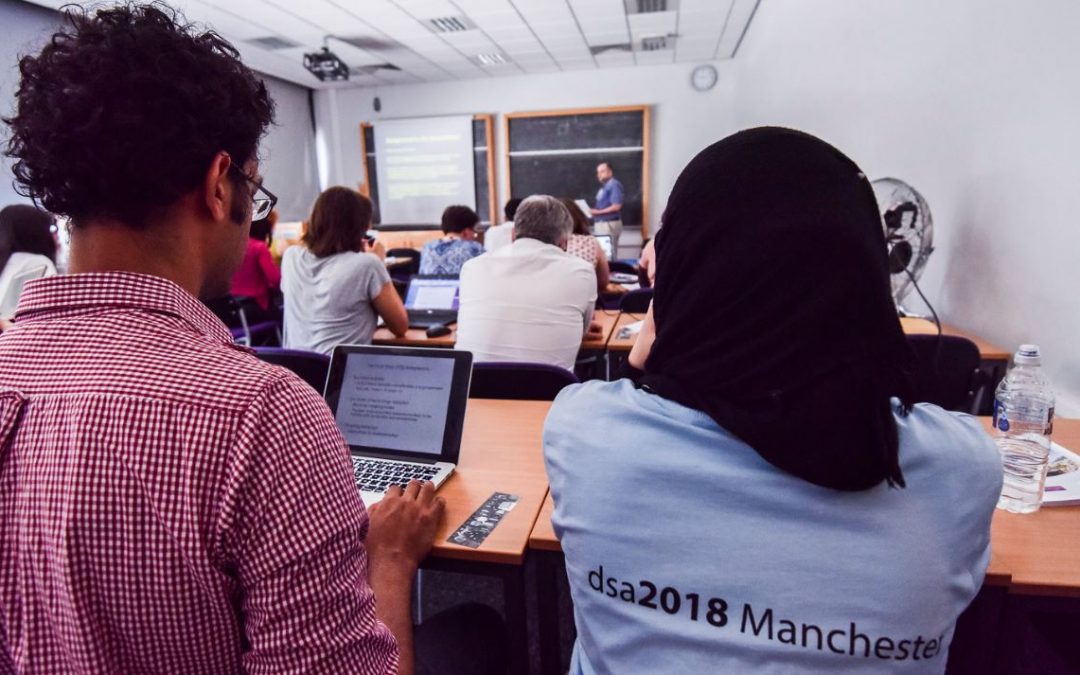
Fieldwork without the field? Courtesy of Covid-19
Luv Arora, International Development: Environment, Climate Change and Development MSc
Today, we live in what has been termed the ‘information age’. Screens surround our lives and even the toaster in our kitchens has a brain of its own. News apps are replacing newspapers and information from any corner of the world is just a few keystrokes and clicks away. Don’t believe me? Just google it. read more…

Shifting South: Horticulture regional value chains and decent work in Africa
In the second of our Shifting South series, Stephanie Barrientos talks to Margareet Visser and Maggie Opondo. They reflect on the project and their research into horticultural value chains.
read more…

Call for abstracts: The new green global division of labour: Emerging geographies of decarbonisation
The ongoing shift away from fossil fuels has sometimes been framed as a ‘green energy race’ among states, each competing with one another on national missions to develop and deploy renewables. Complicating this picture, various economies across both global North and South are specialising within new geographies of production for green energy infrastructure, with attendant cross-border interdependencies and inequalities coming increasingly into focus. Unequal relationships and capabilities, however, do not merely replicate a familiar North-South, centre-periphery geography, but are forming around new patterns of production, trade, finance and governance. read more…

How costly political realities undercut Ghana’s electricity reforms
Barnaby Joseph Dye, University of Manchester
Ghana reformed its electricity sector by the book but has lurched from blackouts between 2012 and 2015 to a glut of energy which costs government about 5% of GDP. Fitch ranks the energy sector as the biggest driver of national debt. How did this happen? It’s a classic case of implementing the “standard reform model” – a one-size-fits-all approach – that ignores a country’s political realities. read more…

Shifting South: Regional garment value chains and decent work in Southern Africa
In the first of our Shifting South series, Stephanie Barrientos talks to Khalid Nadvi and Shane Godfrey. They reflect on the project and their research into regional garment value chains, and decent work in Southern Africa. read more…

Migration and inequalities in the Global South: Conference reflections
Juno Ellison, Wellcome EDI Research Placement intern
The past few months have witnessed a resurfacing of high-profile xenophobic migration agendas in the UK reminiscent of the Brexit campaign through the Government’s Rwanda plan, mirroring similar policies from Denmark and the EU which seek to externalise the asylum process to countries in the Global South rather than grant individuals their right to safe asylum and refuge. As it stands, the OECD estimates that there are 82 million people migrating within the Global South, comprising roughly 36% of the total global stock of migrants. This is in addition to the record high number of 59.1 million internally displaced people within the Global South, revealed by the 2022 Global Report on Internal Displacement2022 Global Report on Internal Displacement. read more…

Africa’s infrastructure reveals many shades of competition and contests that can influence continent’s future
Gilead Teri, PhD researcher, Global Development Institute, University of Manchester
On June 21st 2022, while discussing the newly tabled budget draft a member of Tanzanian Parliament raised an underreporting discrepancy between the amount that the Minister of Finance informed parliament it allocated to pay a single-source Chinese contractor for a section of its Standard Gauge Railway and what the electronic public procurement system has awarded to the firm. The MP noted the difference to be over $600 million. He lamented about corruption, demanded reopening of the tender process, and use competitive bidding. read more…

What’s our role in changing the international aid system? A personal and practical reflection
Dr Nicola Banks, Senior Lecturer in International Development: Urban Development and Global Urbanism
Ten years ago (where has time gone?!), myself and David Hulme’s work went as ‘viral’ as an academic piece of work can go when it was picked up and lambasted by Duncan Green in his well-read From Poverty to Power blog. The research (since republished in World Development) questioned the transformative potential of development NGOs given the array of challenges and restrictions they face across the aid chain. We argued that smaller, more socially-embedded organisations are best-placed to uphold the transformative aspects of development that NGOs are praised for (as opposed to service delivery outcomes) but recognised that this is not where power and resources in the aid chain are concentrated. read more…

Transcribing mobile lives into urban spaces: observations from Haifa
Adriana Kemp, Professor of Sociology, Tel-Aviv University and Tanja Müller, Professor of Political Sociology, Global Development Institute
If citizenship is about shaping cities and urban spaces at the same time shape migrants, the question becomes how the different life-worlds of migrants and cities come together. Cities are increasingly seen as models of complexity, all the more so as we seem to live in multiple ways in times of crises. At the same time, city planning and the social and economic dimensions of crises hardly ever seem to connect. Cities do not seem to be built for the people living in them and their needs – but to live up to some planning ideals or, even more mundane, to the profit strategies of entrepreneurs and global investors. read more…

GDI at DSA2022
Academics from the Global Development Institute are presenting papers and convening panels at the annual Development Studies Association conference taking place 6-8 July 2022. This year’s conference adopts justice and equity as central normative lenses to explore just futures in an urbanising and mobile world, facing a climate and ecological crisis in a pandemic or post-pandemic context.
Below we have highlighted the panels involving GDI colleagues.
